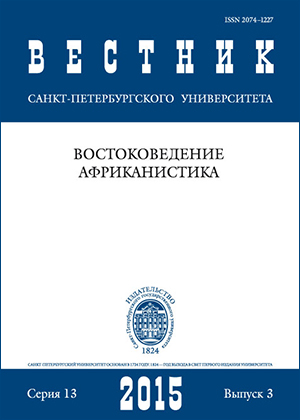The values system of maninka of Guinea (based on field research in 2014)
Abstract
The article is devoted to the study of the value orientations system of the maninka of Guinea, using the advanced procedure of M. Rokeach. The studies were conducted in the cities of Kankan and Nzerekore, as well in the villages of Suigiri district. We used the M. Rokich’s method of ranking values with some modifications. The development in the study of value-motivational activities was also used. By the results of questioning it is visible that the Family, Health (physical well-being). Maintenance of religious values and Wisdom are highly estimated by everything, then as in medium-sized points respondents essentially disperse. In the values hierarchy of young maninka people some concrete values dominate, instead of abstract values. Individual values are low enough for Guinea and they turn right at the end, moreover the values typical to the modern Western civilization are not popular in West Africa. We can say that increase of the importance and accordingly arrangement of values correspond to the hierarchy of needs of Maslow: security needs and needs of public recognition. In almost all of the dominant values are conservative, that will obviously define both motivation maninka and their activity as a whole. But thus it is necessary to note the high level of the intellectual development’s desire which is most peculiar to young Guineans. Refs 6. Tables 2. Figs 1.
Keywords:
values system, maninka, Guinea
Downloads
References
References
Downloads
Published
How to Cite
Issue
Section
License
Articles of "Vestnik of Saint Petersburg University. Asian and African Studies" are open access distributed under the terms of the License Agreement with Saint Petersburg State University, which permits to the authors unrestricted distribution and self-archiving free of charge.





